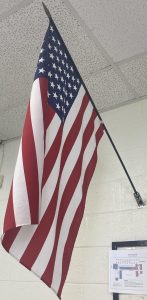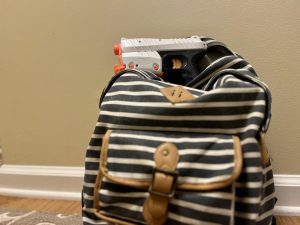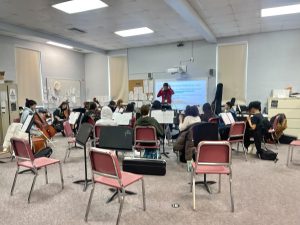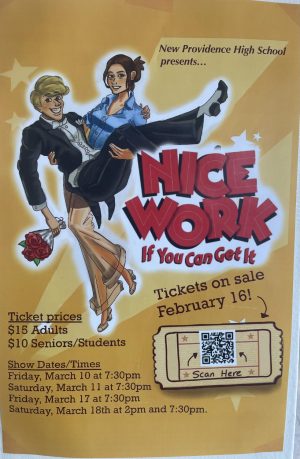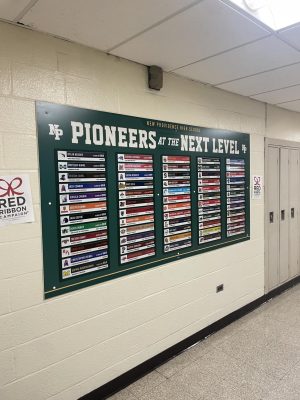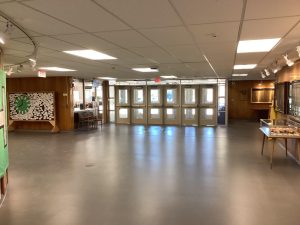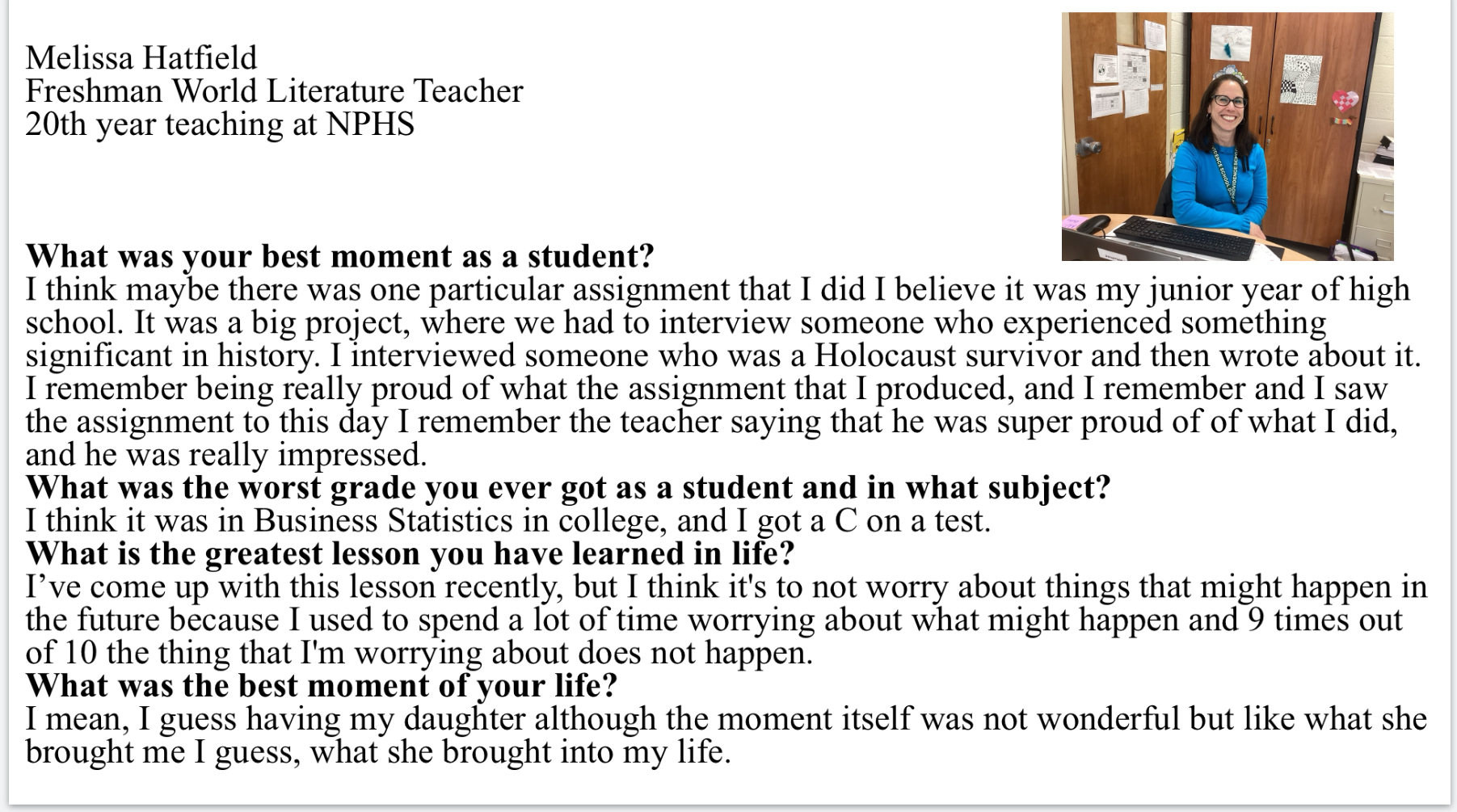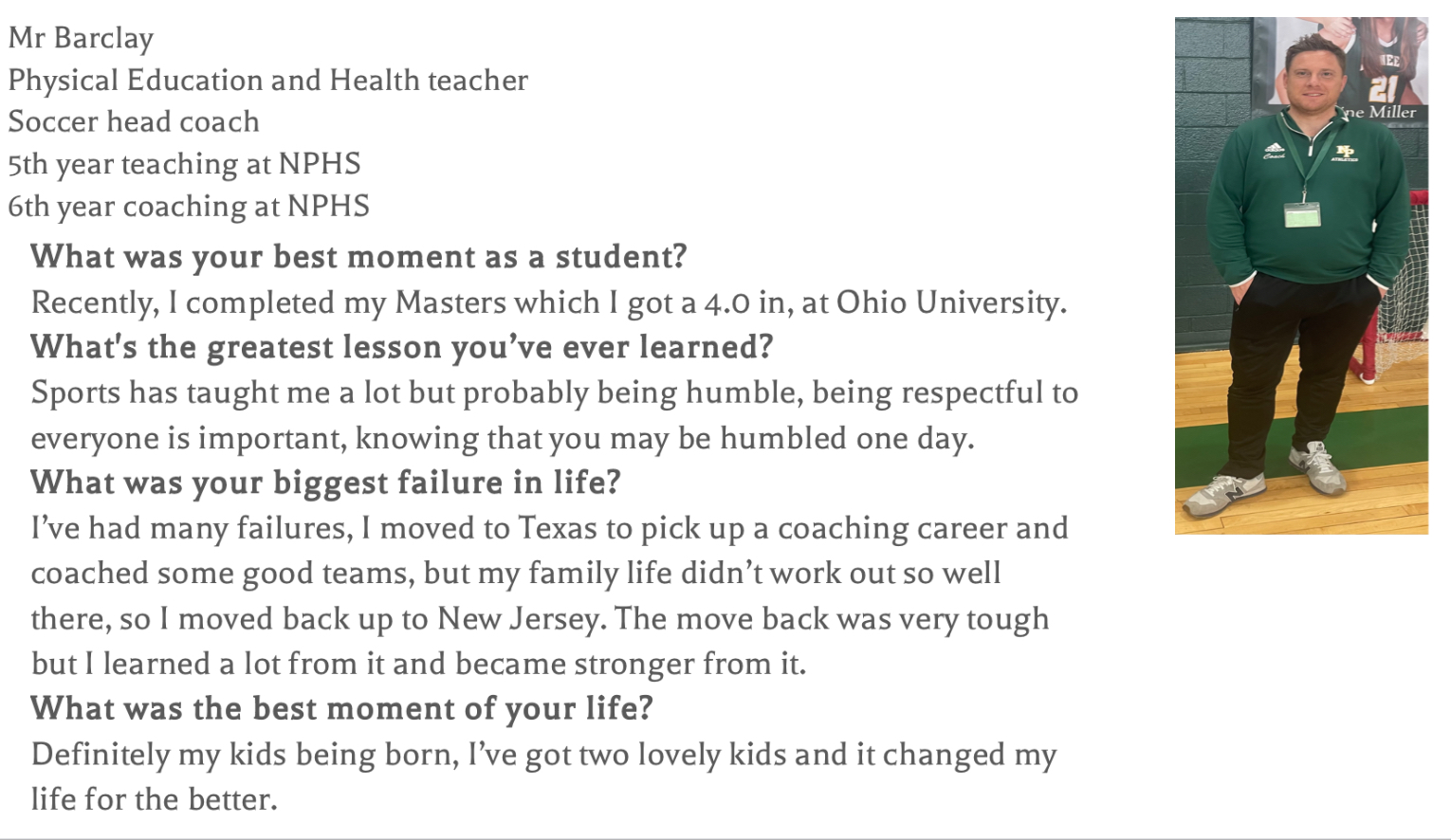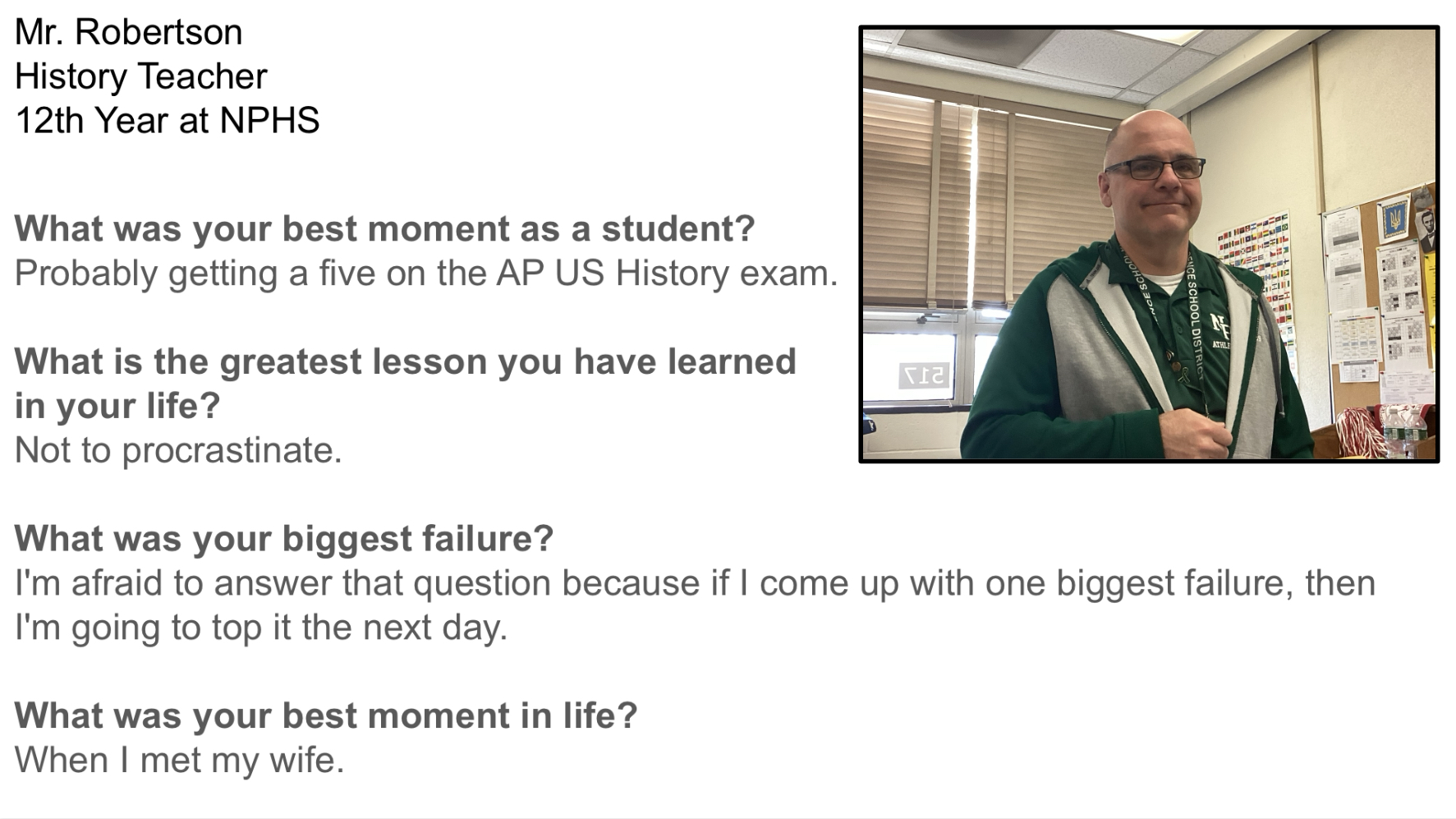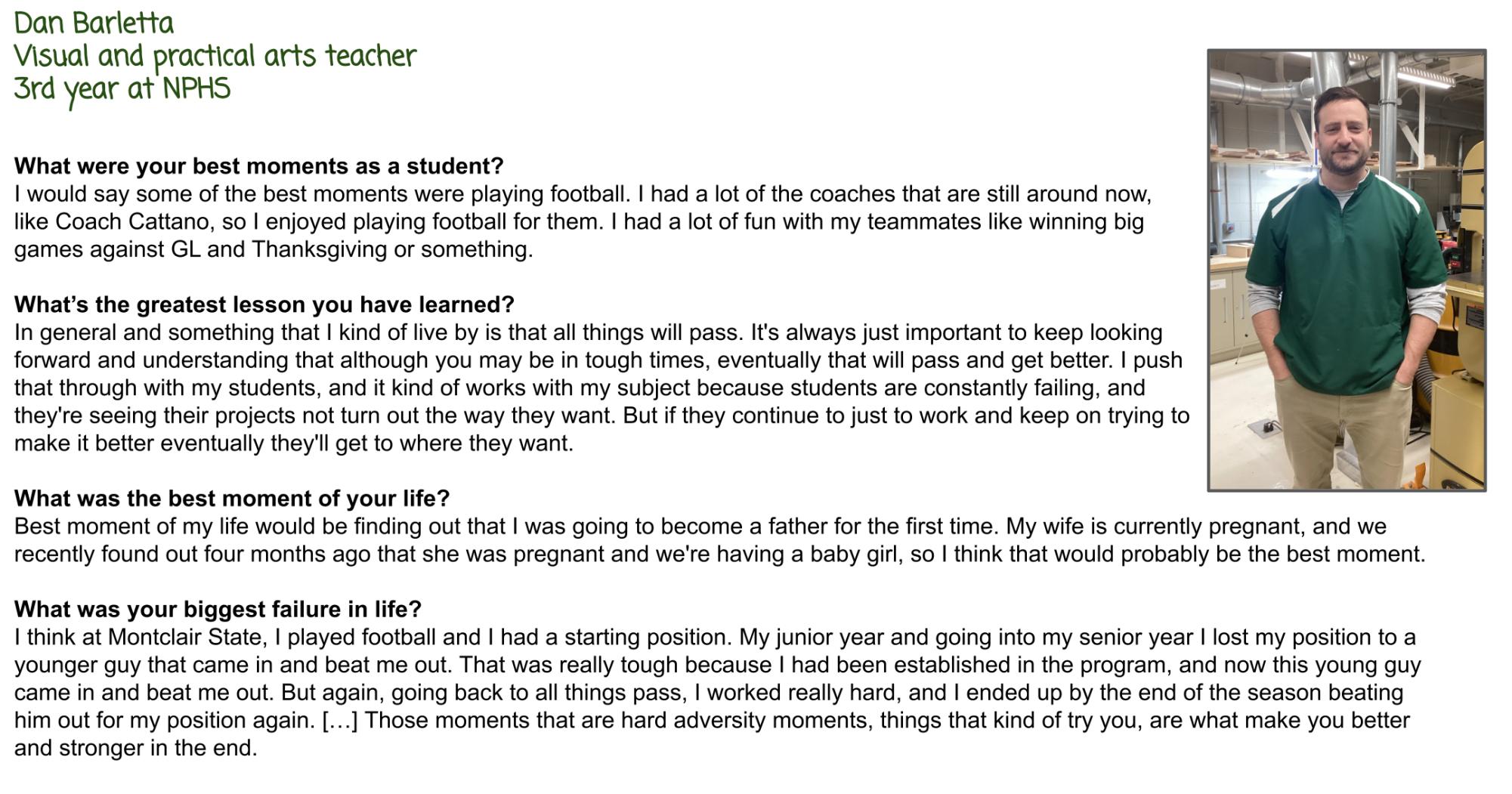The Providential has been lucky enough to obtain an interview of a veteran, done by members of our very own Future Civic Leaders Club.
If, at the end of the day, you have taken more than you have given, you are not a proper contributor to society. Most of us have fallen into this ditch of selfishness and greed. However, there are people today who are sacrificing their time, blood, life for us, and that is a truly commendable thing. As Americans, we owe everything from our liberty to our high standard of living to these altruistic beings, these heroes, these veterans because in each war fought, we put something at stake, and they protected it for future generations to have peace of mind and ease of body.
A history textbook cannot compensate for the real feelings of these warriors; it simply gives us statistics. Thus, to revitalize those emotions and remind us of the veterans’ sacrifices, we embarked on a mission to interview a veteran of World War II, John Karfo. Not only did we learn about the struggle and constant work of the Navy during World War II, but we also realized how much World War II affected people even after their service.
John Karfo served in the Pacific Theater, working from the beginning of the war through occupation of Japan. He constructed battalions on various islands, and although he never faced combat, he was under constant pressure and demand to keep working, as he said, “Oh, they just worked the hell out of you and you followed rules, all the instructions and it’s just a grind”. Through the grind, they even innovated new methods to survive.
Building battalions probably inspired his career choice as he went on to become a renowned architect, designing structures such as the St. Louis Arch and a golf course for President George Bush Sr. He was educated at Columbia University through the GI Bill, which goes to show the value of education and the impact of legislation post-World War II.
In the wake of an international war, America held strong to her ideals of democracy but could not have done so without the endless effort of the GI. What they gave us cannot be counted in dollars, but in the security and independence they gave us for generations. To thank our veterans, the least we can do is to take Memorial Day to appreciate them and everyday, remember their sacrifice in our hearts.
Here is a partial transcript of the interview conducted by Wajiha Khan and Anna Westerhaus with John Karfo on 5/24/13:
KHAN: We are here in New Providence, NJ. My name is Wajiha —
WESTERHAUS: And I’m Anna.
KHAN: And we are going to be interviewing Mr. John [Karfo]. Where did you serve?
KARFO: Where? The Pacific.
KHAN: Oh wow.
KARFO: The Pacific, served in Japan in the occupations, the Philippines, Aleutian Islands. Let me see what else. Left from San Francisco to the Pacific Coast.
KHAN: Were you drafted or did you enlist?
KARFO: No, I enlisted.
WESTERHAUS: What part of the Army were you a part of?
KARFO: I was Navy.
WESTERHAUS: Oh my gosh! My grandpa was in the Navy!
KARFO: Constructing battalions, the CV’s.
KHAN: Where were you living at the time before you enlisted?
KARFO: I was in, that would be, Long Island.
KHAN: Oh really! That’s nice! So why did you join?
KARFO: Well, I was working in the Defense Plant in Long Island.
KHAN: Oh yea, that was why you joined?
KARFO: I worked in Defense Plant about half a year. I was very young about 20-2 and I guess I felt restless and I decided to enlist.
WESTERHAUS: Did you join early in the war or later?
KARFO: Oh I was early in the war. I think it was one month after it started.
KHAN and WESTERHAUS: Oh wow! That is early!!
KHAN: So why did you pick the Navy to enlist into?
KARFO: I don’t know. It just appealed to me, that’s all.
KHAN: More so, OK. Do you recall your first days of the service?
KARFO: First days when?
KHAN: First days of the service
KARFO: Oh first days of the service. Let’s see… we were shipped down to Norfolk, Virginia for basic training and boot camp
KHAN: Wow..
KARFO: And General basic training, exercises, and… that’s about it
KHAN: So this was during the winter?
KARFO: What’s that?
KHAN: In the winter you went?
KARFO: It was, oh geez, I don’t even remember.
KHAN: Ah OK. So what did it feel like once you got started in the boot camp and started training?
KARFO: Oh they just worked the hell out of you and you followed rules, all the instructions and it’s just a grind.
WESTERHAUS: So, you served in World War II, right?
KARFO: You’ll have to speak louder. My hearing.
WESTERHAUS: You served in World War II?
KARFO: Did I what?
WESTERHAUS: Did you serve in World War II?
KARFO: Yeah.
WESTERHAUS: OK, so you said exactly where you went before. So do you remember arriving at all those different places, what it was like?
KARFO: Yeah, the Aleutians was a very cold environment and…to be exactly it was on the island of Kodiak, that’s the famous place where all the bears are, the Kodiak bears.
KHAN: Oh really! that’s where it’s from.
WESTERHAUS: Is that like around Alaska?
KARFO: Yea, that’s an island off the mainland of Alaska and…so…There we built areas to live in and I worked in the garage, I remember, and taking care of the equipment and repairing it- whatever was required. And that’s it.
WESTERHAUS: Ok so, yea you said what your job. Did you see any combat or were you just kind of repairing?
KARFO: No, I did a lot of work- no combat.
WESTERHAUS: What were a couple of your most memorable experiences?
KARFO: That would be on the Island of Amchitka.
KHAN: And where is that? Is that near the Philippines?
KARFO: That would be at the end of the Aleutian Chain, closer to Japan.. and we were set down there to build a unit called FIDO, F-I-D-O,. What it is it’s a unit …and it’s laying down pipes parallel with the runway of.. of the.. of the site there, and through the pipes would pump gasoline… and every 3 inches 4 inches a hole drilled in the pipe for miles.
WESTERHAUS: And what did you do with it?
KARFO: Yeah, and so they pump gasoline through there. The gasoline fell all over the ground and … so as the pipes get heated- ’cause there’s three pipes- they become sort of like a blow torch. And then we used to use, light them up prior to … to take off and landing our bombers after they hit our Naval Base in Japan. So that, that was the first one that America built.
WESTERHAUS: Oh, there were more made after that?
KARFO: And we copied it from the British. And there was the constant fog emissions and that’s why they developed it. And the Island of Amchitka: just solid fog. So the fog, when… when these burners lit up, it would burn the fog right out, as if you cut it with a knife, so they gave you visibility.
WESTERHAUS: So the planes could see.
KARFO: The planes.
WESTERHAUS: So… So were you ever like awarded any medals or citations or anything?
KARFO: No, just a normal medals that are give to ya, serving.
WESTERHAUS: And here, now…
KHAN: It’s Wajiha’s turn… [interruption, speaking to his granddaughter] Ok, so while you were there, how did you stay in touch with your family?
KARFO: Oh that was…just correspondence by just writing letters back and forth.
KHAN: Really?
KARFO: Really.
KHAN: Oh wow. Were you married at the time or..?
KARFO: No.
KHAN: No?
KARFO: No, I was single.
KHAN: What was the food like?
KARFO: The food: nothing to be… to rave about. Just… just general nourishment, I guess.
KHAN: Did you go like, hunting on the island or…?
KARFO: No, every country we went to, they, in the Philippines, it was.. it was all our food. It was our chefs. And so, I didn’t even get to taste any gourmet cooking or…
WESTERHAUS: Did you miss it, like miss all the food from home?
KARFO: I think I was too young.
WESTERHAUS: How old were you exactly
KARFO: I was about nineteen, eighteen.
WESTERHAUS: That’s pretty young.
KHAN: Wow! So, did you have plenty of supplies?
KARFO: Any what?
KHAN: Did you have enough supplies?
KARFO: Oh yeah. Yeah, the Navy did very well as far as equipment, clothing.
KHAN: Oh wow…
WESTERHAUS: So which medals are these?
KARFO: (laughs) I forgot where each one came from. But it’s for the Theater of War we were in, and I forgot, for the area we were in.
WESTERHAUS: Yeah, ’cause it says the Asiatic Pacific Campaign, and then America World War II.
KHAN: Do you… do you still have all of your jackets and…?
KARFO: I have… I don’t know if I’ve got my Navy suit… I.. I’m not sure if we’ve still got it or what.
KHAN: Really? But that’s really impressive…
KARFO: Hmm?
KHAN: That’s very impressive that you still have your medals and…
WESTERHAUS: They’re not even opened!
KARFO: They’re no Congressional Medal of Honor.
KHAN: So, did you feel any pressure or stress while you were there?
KARFO: Oh yeah. Yeah, they… they worked us very hard ’cause we worked in a construction battalion. So,we would, like in the Philippines, we created a whole camp, Quonset huts and all that stuff. And 6 of us would build one Quonset hut a day.
KHAN: That is fast!
KARFO: Yeah. And the huts built high above ground, about three or four feet cause it was swampy conditions and dampness and all that. So they were all… all on stilts like rocks put in the ground. They were up about three or four feet.
WESTERHAUS: You made them all in one day?
KARFO: What?
WESTERHAUS: You made them all in one day? That’s like …
KARFO: Yeah, once we were all , we used to knock them out. There was a crew that would do the logs and it be about maybe 40 logs for a hut. Put in the ground, about four foot up, and then they would be all cut at the same level. And then the Quonset huts are made of steel, steel members. Then they would be laid on top of the logs.
WESTERHAUS: Did you need them to be made of steel because of like, the weather and stuff?
KARFO: No, it’s just that… the members that were made for the Quonset hut were very fine as far as the strength you get out of a steel versus something else.
KHAN: So, who stayed in those shelters? Were they for like the soldiers or like other people of the Army?
KARFO: No, they’re strictly for the Navy.

